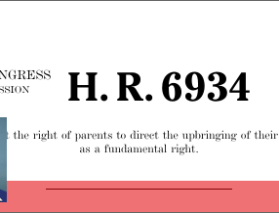Matthew specifies that the man gave the servants more or less according to their ability (dynamin) (25:15). "Ability" could also be rendered "power." Retainers in the households of the wealthy in ancient times gained power by the demonstration of their abilities to manage others and to increase their master's holdings and funds. So ability and power are not so different in meaning here. Some interpreters have speculated that the man is testing his staff, but it seems unlikely that he would use such massive amounts of money to test them. More likely, they have already passed numerous tests to make it into his inner circle. Testing retainers would have been done with lesser amounts. This is a bid by the man to enhance his resources by relying on persons with known skills, not a test for the untried (Herzog, 159).
The "One Talent Man": Hero or Coward?
There are two diametrically opposed, possible interpretations for how this parable disrupts business as usual. William Herzog and others argue that the "one talent man" is the hero of the parable. He alone of the three refuses to increase his funds in the only way a retainer in a wealthy household could in those days, by extracting funds from those who were already strapped beyond endurance by both Temple and Roman taxes. The wealthy elite used its wealth to make loans to peasant farmers so they could plant their crops. Interest rates were high, from 60 to as high as 200 percent. The purpose of making these loans was so that the peasants would be forced to put their land up as collateral, and so that the wealthy elite could foreclose on these loans in years when crops did not cover the incurred debt. In this way the wealthy demoted peasants from independent owners of small family plots to day laborers dependent on the owner for work. The retainers were the ones who brokered these oppressive interchanges. Though it is never said in the parable, it may be that there was an unspoken agreement that the servants would double the master's money, and, as long as they did so, they were free to profit themselves by some "honest graft" added on. The one talent man, by burying his talent, refused to participate in this oppression.
In this interpretation, his accusations regarding the master's character are true (25:24). He is not a coward, but a courageous whistleblower, willing to accepted the consequences of exposing the master and the system he exploits to enhance his own wealth. His master is furious and he is ejected from his household into a future of poverty and death. In this interpretation, the parable disrupts business as usual by recommending the same nonparticipation in oppressive systems in contemporary life.
It's Time to Take a Risk!
A second, more frequent, interpretation better fits the context in which Matthew has placed the parable, with its warning against passivity. It also makes more sense in light of the fact that the one talent man acknowledges that his motivation was fear and timidity. In this reading, what is strange about the parable is the harsh treatment of the third servant. Rabbinic law stipulated that burying was the best safeguard against theft and that when one buries entrusted money one is free from liability for it. The one talent man has been prudent and he proudly presents his one talent to the returning master (Boucher, 139).
The rapid and violent response of the master is shocking. The one talent man is not guilty of drunkenness or beating fellow servants. He is only guilty of a timid prudence. In the uncertain economic world in which this parable was first told, its hearers may well have identified with the one talent man.
He may not be without fault, however. A clue is that his characterization of the master as one who is "a harsh man, reaping where you did not sow and gathering where you did not scatter seed" (25:24), is never substantiated. No one but the third servant ever accuses the master of harshness in Matthew's version. The master does not accept this description of himself as accurate. It seems as if his accusation of harshness toward the master is just an excuse for his inaction. The master points out (25:26) that if the servant had really thought this he would have invested his money with the bankers so he could have presented the master with interest on his return (25:27).
On this reading, the parable still disrupts business as usual, but it does so by recommending risk rather than timid caution. Matthew places this parable as the conclusion of three parables that affirm that the return of Christ is delayed and that it is certain and that advise proper behavior in the interim. The time before the return of Jesus is to be used responsibly. In these parables Matthew warns against those attitudes that will bring about exclusion from God's kingdom (Donahue, 109).
According to this parable, then, we are to take what ability and power we have been given and use them to increase the influence of God's kingdom on earth. God's power is different from that of a wealthy aristocrat. The parable of the judgment that follows the parable of the talents makes this clear. We further God's purposes not by being an agent of those who have more in exploiting those who have less. On the contrary, we risk seeing Jesus in the poor and the exploited; we risk pouring out our abilities and influence on their behalf.
Sources Consulted
Craig L. Blomberg, Preaching the Parables: From Responsible Interpretation to Powerful Proclamation (Baker Academic Press, 2004)
Madeline Boucher, The Parables (Michael Glazier, 1981)
John R. Donahue, The Gospel in Parables (Fortress Press, 1988)
William R. Herzog, Parables as Subversive Speech: Jesus as Pedagogue of the Oppressed (Westminster John Knox Press, 1994)
Alyce M. McKenzie, The Parables for Today (Westminster John Knox Press, 2007)
Paul Duke Simpson, The Parables, The Great Texts series, edited by John C. Holbert (Abingdon Press, 2005)





